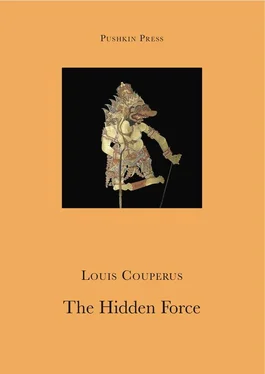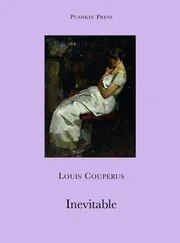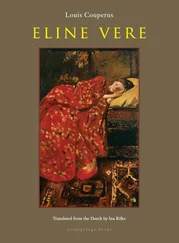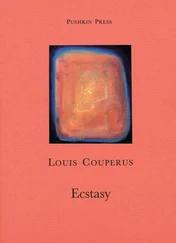Louis Couperus - The Hidden Force
Здесь есть возможность читать онлайн «Louis Couperus - The Hidden Force» весь текст электронной книги совершенно бесплатно (целиком полную версию без сокращений). В некоторых случаях можно слушать аудио, скачать через торрент в формате fb2 и присутствует краткое содержание. Год выпуска: 2012, ISBN: 2012, Издательство: Pushkin Press, Жанр: Классическая проза, на английском языке. Описание произведения, (предисловие) а так же отзывы посетителей доступны на портале библиотеки ЛибКат.
- Название:The Hidden Force
- Автор:
- Издательство:Pushkin Press
- Жанр:
- Год:2012
- ISBN:9781908968227
- Рейтинг книги:4 / 5. Голосов: 1
-
Избранное:Добавить в избранное
- Отзывы:
-
Ваша оценка:
- 80
- 1
- 2
- 3
- 4
- 5
The Hidden Force: краткое содержание, описание и аннотация
Предлагаем к чтению аннотацию, описание, краткое содержание или предисловие (зависит от того, что написал сам автор книги «The Hidden Force»). Если вы не нашли необходимую информацию о книге — напишите в комментариях, мы постараемся отыскать её.
The Hidden Force — читать онлайн бесплатно полную книгу (весь текст) целиком
Ниже представлен текст книги, разбитый по страницам. Система сохранения места последней прочитанной страницы, позволяет с удобством читать онлайн бесплатно книгу «The Hidden Force», без необходимости каждый раз заново искать на чём Вы остановились. Поставьте закладку, и сможете в любой момент перейти на страницу, на которой закончили чтение.
Интервал:
Закладка:
The young girl had come closer, still humming. She may have been seventeen and was just like her mother, now divorced, the Commissioner’s first wife, a pretty young Eurasian woman who now lived in Batavia and, so it was said, ran a discreet gambling den. She had a pale olive complexion, with the occasional hint of a fruitlike blush, and lovely black hair that curled naturally at the temples and was worn up in a very large bun. Her black pupils sparkled in a moist blue-and-white pool, around which her heavy lashes played, up and down, up and down. Her mouth was small and a little plump, and her upper lip had the merest suggestion of dark down. She was not tall, and had slightly too full a figure, rather like a forced rose that blossoms prematurely. She wore a white piqué skirt and a white linen blouse with lace inserts, and round her neck was a bright-yellow ribbon that went very well with her olive pallor, which sometimes suddenly flushed, as if with a rush of blood.
The young man from the front veranda had also come strolling in. He resembled his father, with a thick blond moustache. Scarcely twenty-three, he looked at least five years older, dressed in a Russian linen suit but with a collar and tie.
Finally Van Oudijck himself arrived, his resolute step approaching swiftly, as if he were eating briefly before returning to work. All three sat down without a word and spooned up their soup.
“What time is Mama arriving tomorrow?” asked Theo.
“At eleven-thirty,” replied Van Oudijck, and turning to his personal servant behind him, said: “Kario, don’t forget that the mistress must be collected from the station at eleven-thirty tomorrow.”
“Yes, kanjeng ,” whispered Kario.
A fish dish was served.
“Doddy,” said Van Oudijck. “Who were you at the gate with just now?”
Doddy, taken aback, slowly looked at her father, her eyes sparkling.
“At… the gate?… No one… With Theo maybe.”
“Were you with your sister at the gate?” asked Van Oudijck.
The young man’s thick blond brows creased.
“It’s possible… I don’t know… can’t remember…”
All three were silent. They ate their way hurriedly through dinner in an air of boredom. Five or six servants, in white jackets with red linen facings, moved about softly with their flat-toed gait, serving quickly and silently. The meal continued with steak and salad, and pudding and fruit.
“Nothing but steak…” grumbled Theo.
“Yes, that cook!” said Doddy with her throaty laugh. “She always serves steak when Mama’s not here; she couldn’t care less when Mama’s not here. She has no imagination. It’s too bad…”
Twenty minutes later they had finished eating, after which Van Oudijck went back to his office. Doddy and Theo strolled to the front of the house.
“Boring…” said Doddy with a yawn. “Come on, shall we have a game of billiards?”
In the first inner gallery, behind the satin curtain, was a small billiard table.
“Come on then,” said Theo.
They began to play.
“Why was I supposed to have been with you at the gate?”
“Oh… really!” said Doddy.
“Well, why?”
“Papa don’t need know.”
“Who were you with, then? Addy?”
“Of course!” said Doddy. “Is band playing tonight?”
“I think so.”
“Come on, let’s go, yes?”
“No, I don’t feel like it.”
“Oh, why ever not?”
“I don’t feel like it.”
“Are you coming?”
“No.”
“With Mama you would, no?” said Doddy angrily. “I know that very well. You always go to band with Mama.”
“What do you know… you little madam!”
“What do I know?” she laughed. “What do I know? I know what I know.”
“Eh?” he said teasingly, with a crude attempt to catch her on the rebound. “You and Addy, eh?”
“Well, and what about you and Mama…”
He shrugged his shoulders.
“You’re crazy,” he said.
“No need hide from me! Anyway, everyone says.”
“Let them say.”
“It’s really bad of you, though!”
“Oh, go to hell…”
He threw down his cue angrily and marched off. She followed him.
“Look, Theo… don’t be angry. Do come with me to band.”
“No.”
“I won’t say any more,” she cajoled sweetly.
She was frightened that he would stay angry, and then she would have no one at all; then she would be bored to death.
“I promised Addy, and I can’t go alone…”
“Well, if you don’t say such stupid things again…”
“Yes, I promise. Theo dear, come on then…”
She was already in the garden.
Van Oudijck appeared on the threshold of his office, the door of which was always open, but which was cut off from the inner gallery by a large screen.
“Doddy!” he called out.
“Yes, Papa?”
“Would you make sure there are some flowers in Mama’s room tomorrow?”
His voice was almost embarrassed and he was blushing.
Doddy suppressed her giggles.
“All right, Papa… I’ll make sure.”
“Where are you off to?”
“With Theo… to hear band.”
Van Oudijck flushed with anger.
“To the band? You might ask me first!” he cried in sudden fury.
Doddy pouted.
“I don’t like your going out without my knowing where. This afternoon, too, you had gone out when I wanted to go for a walk with you.”
“Well, suda , that’s that then,” said Doddy, crying.
“You can go,” said Van Oudijck, “but I want you to ask me first.”
“No, I don’t feel like going any more!” Doddy wept. “That’s the end of it. No band.”
In the distance, in the garden of the Concordia club, they could already hear the first sounds.
Van Oudijck had go back to work. Doddy and Theo threw themselves into two rocking chairs in the front garden and rocked madly, gliding across the smooth marble in the chairs.
“Come on,” said Theo. “Let’s get going. Addy’s waiting for you.”
“No,” she sulked. “Don’t care two hoots. Tomorrow I shall tell Addy. Papa so horrid. He’s spoiling my fun. And… I’m not putting any flowers in Mama’s room.”
Theo sniggered.
“Say,” whispered Doddy. “That Papa… hey? So in love, always. He was blushing when he asked me about those flowers.”
Theo sniggered again, and hummed along to the distant music.
3
THE NEXT MORNING at eleven-thirty Theo went to collect his stepmother from the station in the landau. Van Oudijck, who at that time usually dealt with police business, had not said anything to his son, but when, from his office, he saw Theo getting into the landau and driving off, he thought it was nice of the lad. He had adored Theo as a child, had continued to spoil him as a boy, and had often clashed with him as a young man, but still the old paternal passion often flared up. At this moment he loved his son more than Doddy, who was still sulking that morning and had not put any flowers in his wife’s room, so he’d had to instruct Kario to provide some. He was now sorry that he hadn’t spoken a kind word to Theo for days and resolved to do so in the very near future. The lad was volatile: in three years he had been employed by at least five coffee companies; at present he was again out of work and was hanging around at home looking for something to occupy him.
At the station, Theo waited only a few minutes before the train from Surabaya arrived. He saw Mrs Van Oudijck at once, with her personal maid Urip and the two little boys, René and Ricus, who unlike himself were dark-skinned, and whom she had brought with her from Batavia for their long holidays.
Theo helped his stepmother off the train as the station-master stepped up to greet her respectfully. She nodded in reply with her unique smile, like a benevolent queen. With the same ambivalent smile she allowed her stepson to kiss her on the cheek. A tall woman, white, blond, in her thirties, with the languid elegance of women born in the Indies of European parents, she had a quality that immediately attracted attention. It lay in her white skin, her milky complexion, her very light blond hair and her eyes that were a strange grey colour, and which sometimes narrowed momentarily and always had an ambiguous expression. It lay in her eternal smile, sometimes sweet and engaging, and often intolerable, irritating. At first one couldn’t tell whether there was anything hidden beneath that look and that smile — any depth, any soul — or if it was nothing but looking and smiling, both with the same slight ambivalence. However, one soon noticed her smiling, non-committal indifference, as if she didn’t care even if the heavens fell, as if she would greet such an event with a smile. She walked slowly, dressed in a pink piqué skirt and a bolero, a white satin ribbon around her waist, and a white sailor hat with a white satin bow; her summer travel outfit was very smart compared with that of some of the other ladies on the platform, strolling along in stiffly starched wrap-arounds — like nightdresses — and tulle hats topped with feathers! The only touch of the Indies in her extremely European appearance that distinguished her from a woman newly arrived from Holland was perhaps her slow gait, that languid elegance. Theo had offered her his arm and she allowed herself to be conducted to the carriage—“the coach”—followed by the two little dark-skinned brothers. She had been away for two months.
Читать дальшеИнтервал:
Закладка:
Похожие книги на «The Hidden Force»
Представляем Вашему вниманию похожие книги на «The Hidden Force» списком для выбора. Мы отобрали схожую по названию и смыслу литературу в надежде предоставить читателям больше вариантов отыскать новые, интересные, ещё непрочитанные произведения.
Обсуждение, отзывы о книге «The Hidden Force» и просто собственные мнения читателей. Оставьте ваши комментарии, напишите, что Вы думаете о произведении, его смысле или главных героях. Укажите что конкретно понравилось, а что нет, и почему Вы так считаете.












